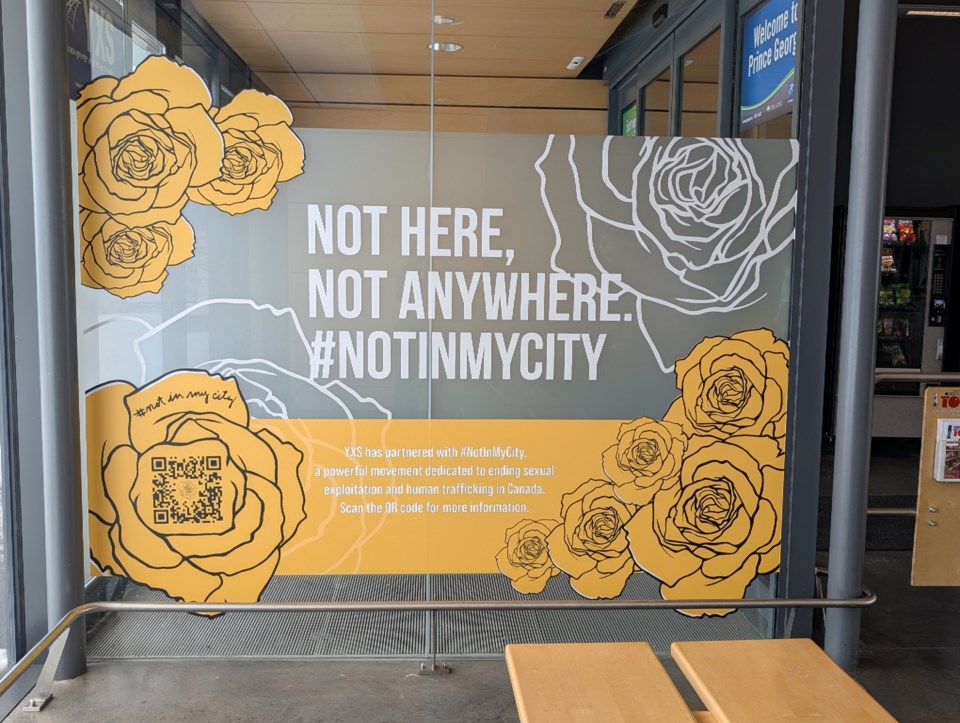The Prince George International Airport launched a new program aimed at combatting sexual exploitation and human trafficking on Thursday, Feb. 20.
As part of this new initiative, travellers arriving and departing at YXS will notice a yellow rose prominently displayed throughout the terminal. The rose is a symbol of #NotInMyCity and serves as a reminder of the need to disrupt, prevent and ultimately end human trafficking worldwide.
"We are proud to partner with #NotInMyCity as an ally in the fight against human trafficking and exploitation," said Sabrina Angus, interim president and CEO of the Prince George Airport Authority, in a press release. "At the Prince George Airport, we are committed to ensuring the safety, security, and well-being of everyone who passes through our airport. This partnership underscores our dedication to fostering a safe and welcoming environment for all."
#NotInMyCity was launched in January 2017 by Canadian musical artist Paul Brandt. The initiative is dedicated to raising awareness and driving action to end human trafficking and sexual exploitation across various industries, including transportation and hospitality.
"Airports continue to be an important partner for #NotInMyCity, and we are building our network of transportation allies across the country who are committed to helping end human trafficking and sexual exploitation," Brandt said in the press release. "We are hearing successful stories of airports supporting survivors during critical times because they now know what to do and what to look for. I applaud the Prince George Airport Authority for taking this important step forward."
The need for programs like this is growing, as human trafficking is one of the fastest-growing crimes in Canada. More than 93 per cent of reported victims domestically are Canadians being trafficked to other provinces. Globally, 98 per cent of sex trafficking victims are women and girls, and 26 per cent of human trafficking victims in Canada are under the age of 18.
Indigenous peoples make up four per cent of Canada’s population but account for more than 50 per cent of trafficking victims in the country.
According to the International Air Transport Association (IATA), airports are one of the most frequently used hubs for international sex trafficking, with more than 80 per cent of international human trafficking journeys crossing through official border control points, including airports.
Common signs of a person being trafficked through transportation hubs include:
- Few or no personal items
- Not knowing travel details, such as the destination
- Appearing to be controlled, closely watched or followed, and deferring conversations to someone else
- Being frightened of uniformed security personnel
For more information about the #NotInMyCity initiative, visit notinmycity.ca.


